- Home
- Rachel Caine
Unseen os-3
Unseen os-3 Read online
Unseen
( Outcast Season - 3 )
Rachel Caine
After Cassiel and Warden Luis Rocha rescue an adept child from a maniacal Djinn, they realize two things: the girl is already manifesting an incredible amount of power, and her kidnapping was not an isolated incident.
This Djinn—aided by her devoted followers—is capturing children all over the world, and indoctrinating them so she can use their strength for herself. With no other options, Cassiel infiltrates the Djinn's organization—because if Cassiel cannot stop the Djinn's apocalyptic designs, all of humanity may be destroyed.
Unseen
(The third book in the Outcast Season series)
A novel by Rachel Caine
To my friends A.J. and Wendy, who found each other.
Be happy.
To my friends Claire and Gareth, who held on to each
other for as long as possible. Be at peace.
To Jason L. Dawson, who just held on, despite the odds.
Be strong.
Also, to the astonishing Jackie Kessler.
You go, girl. Go far.
ACKNOWLEDGMENTS
The Stone Coyotes (thanks, Barbara!)
Joe Bonamassa
Lexi Waller
As always ... Cat, without whom ... well, you know
WHAT HAS GONE BEFORE
MY NAME IS CASSIEL, and I was once a Djinn—a being as old as the Earth herself, rooted in her power. I cared little for the small, scurrying human creatures who busied themselves with their tiny lives.
Things have changed. Now I am a small, scurrying human creature. In form, at any rate. Thanks to a disagreement with Ashan, the leader of the True Djinn, I can sustain my life only through the charity of the Wardens—humans who control aspects of the powers that surround us, such as wind and fire. The Warden I’m partnered with, Luis Rocha, commands the powers of the living Earth.
I find myself caring too much about Luis, and his niece Isabel, and others who never would have mattered before. The leader of the Old Djinn tells me that I must destroy humanity to save the Djinn, and all other life on Earth. I do not believe that. I cannot.
I have become too ... human.
Before, that would have seemed like a curse.
Now I believe it may be a blessing.
Chapter 1
FIRE IS A LIVING, malevolent thing. It eats, it breathes, it moves with fluid grace and eerie, destructive beauty.
I could still appreciate the astonishing power of it, even as my hair crisped at the ends and the heat seared across my fragile human skin. Flames poured like liquid down the walls of the office, rippling and twisting out onto the floor, devouring the furniture. Everything seemed trapped in its own frozen moment of destruction, as if the fire had become amber. I couldn’t focus my stinging eyes for more than a few seconds; everything seemed too bright, too hot, and in the next instant smoke billowed black and choking around me.
I fell to my knees and crawled, breathing oven-hot toxic fumes until my searching hand fell on something soft. Skin—a woman’s hand. It wasn’t moving. I grabbed hold and pulled her back toward me; her black suit had caught fire, and I batted the blaze out as coughing fits threatened to rip my lungs from my body.
The woman I had found was unconscious but still breathing shallowly. Smoke had made her face a grimy mask.
“Cass! Get your ass out now!” A raw, ragged shout pierced the roar of the fire, and I looked around to see a sheet of fire racing across the floor toward me. A sudden chemical blast of white foam snuffed it out. It was a temporary measure, but it gave me precious seconds to find the strength to move.
Luis Rocha, still holding the sputtering, empty extinguisher, stumbled into view out of the thick smoke. My Warden partner looked as if he’d been through a fierce battle—clothes torn and burned, skin singed. He’d lost part of his shoulder-length black hair to the flames. “Cass, come on—we’re losing it! Gotta go!”
I poured raw Earth power—thick, golden power that flowed like honey—over the woman I’d found, into her, and saw her breathing and heartbeat steady. I stood up and grabbed her around the waist. She was a small thing, and I was tall; even so, the weight of her draped over my shoulder caused me to stagger. The fire roared its defiance and ignited a chair only a few feet away; it burned fast, upholstery charring into black lace and revealing bones of springs and wood.
I stopped, momentarily overcome. Nothing looked good right now, and I couldn’t find the exit. You will die here, something told me. It sounded like the cold, dispassionate voice of Ashan, the leader of the Old Djinn—my brother, in a very real way; my king, in every way that mattered. Why do you do these things for them?
For humans, he meant. I was not born into flesh; being here in the mortal world was my choice, just as I’d chosen to run into this burning building alongside Luis.
I had my reasons for doing both of those foolish, potentially fatal things.
At least the part of me that was stubbornly Djinn, immortally powerful, saw it as foolishness. There were times—and this was one—when the human part was tempted to agree with it.
A blessedly cool draft of air fanned my face, and I gulped it in as I staggered blindly into an area of the building not yet fully involved. A glass door had shattered at the end of the hall, and the strong breeze flowing past me was drawn by the sucking pressure of the fire behind me. We had, at best, only moments before it would lash out with explosive force in a fireball, scorching everything it touched along the way.
Ahead of me Luis was shouting something as he headed for the doorway. I couldn’t answer. My lungs were choked with smoke and soot, and all I could do was cough, stagger, and brace myself against a black-smudged, too-warm wall. My eyes were watering and stinging, and I wanted to sit down against this wall, drowning in the cool, blowing air—but I knew that if I did, I’d be dead, and the woman I was trying to save along with me.
I felt a sudden wavering pause in the air flooding past me, and my skin prickled in instinctual alarm. It felt like the silence before a lightning strike, but I felt no weather-working in play. No, this was physics—physics of a different kind.
And then the fire exploded through the door behind me, crawling and leaping along the hallway’s ceiling and walls in thick, fiery tendrils. Hungry, and grabbing for its food.
“Cassiel!” Luis shouted, and plunged back toward me. Too late, of course; he couldn’t outrun that fire, any more than I could. I felt it with a kind of fatalistic calm: I was, indeed, going to die here, now, in this moment.
I was going to die a failure, trapped in human flesh, unable to prevent the disaster that was coming, or my own foolish end.
And it might have been so, except that a child walked calmly out of the hellish burning heart of that fire, through the doorway, and extended her hands toward me. She was a small, lovely girl with long, silky black hair and the caramel-colored skin of her uncle Luis. When I had first met Isabel, she’d been a laughing, happy child.
Now she was far too grown-up for her very young age—almost six. Her eyes had a depth and sadness that spoke of trauma, and as she extended her chubby little hands toward me she closed them into fists, and the fire that was racing toward me ... died.
It was as if there was some barrier over the doorway she had stepped through. The fire boiled and roared there, but couldn’t pass to reach the cooler air beyond. Even the breeze had ceased.
There was not a mark on Isabel. Not a singed hair, nor a single smudge of ash. Her pale blue T-shirt had a cheerful rainbow on it, vibrant as ever, and even her white sneakers were clean.
She said, very soberly, “We should go now, Cassie.” Isabel was the only person in the world I permitted to call me that. It was a reminder of happier days, and a happ
ier Ibby. I continued to cough as she walked past me toward her uncle Luis. He shook his head and met my eyes briefly, and I read in his gaze how disturbed and worried he was by seeing her this way. There was nothing to be said, though. He took Ibby in his arms and carried her toward the broken glass door.
I followed, with my own unconscious burden.
Outside, the scene was a confusion of flashing lights, the harsh glow and roar of the fire, the squawk of radios and shouts of men. Fire trucks unrolled great white snakes of hoses, and men and women in heavy protective gear rushed toward the building. One took the woman from my shoulder and hurried her toward a waiting ambulance and team of paramedics.
I sank down to the grass, still coughing, and spat out black, vile-tasting mucus. I don’t know how much time passed—a minute, maybe two—before a paramedic knelt next to me and held up an oxygen mask. I sucked gratefully on the cool, sweet breath of life, feeling my head clear and my lungs ease. He handed me a packet of premoistened towelettes and gave me a thumbs-up motion, with eyebrows raised. I nodded. He moved on.
I scrubbed the damp fabric over my grimy face, and realized that my hands were trembling. I could have used Earth power, drawn from Luis, to clean myself off and start to heal the damage done to my lungs, but I chose not to do so; Luis, at the moment, needed his strength, and I was not seriously injured. My vanity could be satisfied with mere human cleaning methods for now.
A well-dressed man with a badge hung on a cord around his neck took a knee beside me. He wasn’t looking at me so much as at the burning building, and his expression was remote and focused. His credentials said his name was Guilder, and he was wearing a crisp black suit, white shirt, and businesslike blue tie.
“You’re Cassiel,” he said. “The Djinn.” He didn’t say it the way a Warden who’d grown up with the idea of supernatural genies locked in bottles would have; he pronounced the word carefully, awkwardly, like an entry in a foreign dictionary. “I’m Guilder. FBI.”
I nodded. I had expected the agents to descend on us quickly; I was simply surprised that he wasn’t one of many. I removed the mask (a little regretfully) and said, “You want to know how it happened.” My voice hardly sounded like my own; my vocal cords were strained, and had the husky growl of a longtime smoker. “We warned you.”
“I’ve been briefed already about your warnings,” he said, still watching the blaze as the firefighters began to train their hoses on it. “You really think a child caused all this?”
“Not just any child,” I said. “A child who can control fire and bend it to his will. We warned you not to keep any of them here. You’re not equipped to handle them.”
The children had been rescued—or abducted, depending on which side you might be on—from camps across the United States run by the Church of the New World, a fringe organization that had recently twisted itself in dangerous new directions: either one that abducted children with blossoming Warden powers over Earth, Fire, and Weather, or subverted the parents to believe that the Church was the only possible way to protect their young ones. Part of the Church’s teaching was that the Warden organization, the official gathering of those gifted with these powers, intended harm to the children. I was the first to admit that the Wardens were not perfect, but I knew they meant the best, especially for the talented innocent.
The Church, on the other hand, taught that the Wardens were ruthless, cruel mutilators who would rip the talent away from the children, leaving them psychic cripples at best, or dead at worst. That could happen, of course, if a child manifested a talent that was dangerous to everyone else, and had to be stopped. It was rare, but possible. The Wardens didn’t always err on the side of mercy.
The Church preached it as an everyday occurrence, as a plan. And many people had believed, and given the Church children to train—or the Church had, in some cases, abducted those it thought were the most valuable, the most vital, to its cause.
Such as Isabel.
Those children—the few we had managed to free from the Church compounds across the country—were dangerously gifted, trained too early, burdened with power that they were not equipped, either emotionally or physically, to handle.
I had warned the FBI not to keep the children here, in their offices. At the minimum, Wardens should have been kept on duty to ensure that the children didn’t panic and use their abilities irresponsibly.
As one of them clearly had.
Guilder didn’t argue the point. “We thought we knew the risks,” he said. “We underestimated the situation.”
In earlier months I would no doubt have informed him just how badly they’d miscalculated, but I had learned, at great cost, when to let a subject go, for politeness’ sake. Tact was not something for which I had a natural gift. “How many casualties have you sustained?” I asked.
“Zero, since you got Agent Littleton out.” There was a slight warming in his tone, and he glanced at me, finally. “Thanks for that.”
I nodded and coughed a little more, but the pressure in my lungs had eased. I was beginning to feel a monumental wave of exhaustion building, and knew I’d have to rest soon, but in the meantime there was a pleasant feeling of warmth and relaxation. Even my burns stung only lightly.
Impossible, in my state, to miss the surge of feeling that had come from the FBI agent—a complicated mix of gratitude, worry, and ... love. Not for me, of course, and it was rare that I could feel emotions from anyone save Luis, but it appeared that Agent Guilder had at least a latent Earth-based ability, something too mild to be called a true power.
The love was not for me. It was for the agent I had saved. Agent Littleton.
I met his gaze and said, “Is there not a regulation against agents becoming ... close?” So many euphemisms, in human speech. But the imprecision helped, I’d found; I didn’t know his relationship with the other agent, but I sensed its depth. And secrecy.
He hadn’t expected that question at all, and I caught the surprise and discomfort in his expression, despite the reserve that he had surely learned as a law enforcement professional. He just as quickly smoothed it away. “No code against being happy a coworker survived,” he said. “I’m pretty sure there isn’t. I read the rule books.”
That made me smile, as he no doubt intended. “I’m sure you’re correct,” I said. “The children are not harmed?”
He shook his head. “The rest of the kids are all okay. The only one unaccounted for is the boy who kicked off the fire, and he took off once he got the whole thing revved up to Mach Three; this was basically a big, fiery distraction to cover his escape. Your niece and another boy protected the other kids and as many of the agents as they could.”
“She’s not my niece,” I said. It was an automatic response, but I almost immediately regretted saying it. I cleared my throat and tried again. “She is the niece of my partner, Luis Rocha. Her name is Isabel.”
“Hmm. She calls you Aunt Cassie.”
“I know.” I looked away from him toward the fire. “She was recently orphaned. It’s been—difficult for her.”
“From what I’ve heard, it’s been difficult for all of these kids,” Guilder said, and finally rose to a standing position, still looking down at me. “We’re going to need a statement about what happened inside. Not tonight, though. Tomorrow. We’ll call you and Mr. Rocha in for that.”
“You’ll have offices again so soon?” I asked. He smiled. It was a deep, charming sort of smile, a professional weapon he wielded with surgical accuracy.
“That’s why God made laptops,” he said. “And cell phones. Not to mention credit cards.”
He nodded and walked away toward the ambulance, where he bent over the agent I’d pulled from the fire. She looked very small on the gurney, and he was quite tall, bending over her. I was certain he did not intend to reveal what his body language so clearly communicated.
It was probably a good thing for him that Agent Littleton was unconscious. If she returned his affection, it would be awkward for them
both; if not, it would be heartbreaking.
My attention drifted from Agent Guilder to Luis Rocha, who was sitting on the curb beside Isabel, with his arm around the child. He looked tired and smoke-stained and singed around the edges, but the smile on his face was genuine and very lovely. The smile was for Ibby, but as he looked at me, the smile ... stayed. If anything, it grew warmer.
I looked away, suddenly unsure what an appropriate social response might be. The feelings that ripped through me were too jagged and confusing to sort out now, and the exhaustion wave was cresting inside me, drowning me in a need to lay my head down and rest. He felt that, of course; it was almost impossible for me to hide that sort of exhaustion from Luis, as closely as we were connected. He hugged Ibby and stood up, with her hand in his. The light from the fire caught and flickered on his skin, especially his bared arms, where flame tattoos twisted in skillfully inked patterns.
I watched the tattoos flex and move as he walked closer. It was easier than looking into his face.
“You’re tired,” he said, and it wasn’t a question. “I’m taking you home, Cass.”
I nodded, because it sounded like a very acceptable idea. Isabel and I were almost on eye level, since I was sitting down, and when I glanced at her I saw she was watching me with wide, luminous eyes. I couldn’t read a thing from her expression, and her emotions were closely concealed within as well.
Until she threw her arms around my neck and hugged me.
I embraced her in return and put her on my lap. “Hush,” I whispered, even though she was making no sound at all. “Everyone’s all right. Even us.”
“I’m sorry,” Ibby said. “I tried—He was so mad, Cassie. I couldn’t make him stop. He thinks you want to hurt us. Hurt him. I just couldn’t make him understand.”
“Nor should you have to,” I said. “It was brave of you to try, little one. And to get the others to safety.”

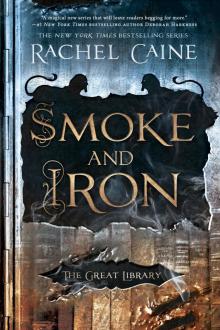 Smoke and Iron
Smoke and Iron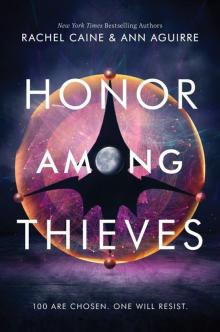 Honor Among Thieves
Honor Among Thieves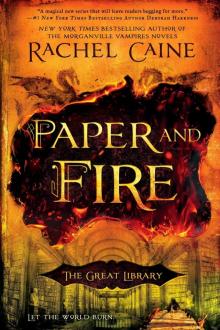 Paper and Fire
Paper and Fire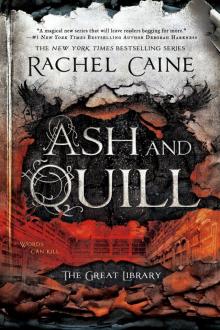 Ash and Quill
Ash and Quill Wolfhunter River (Stillhouse Lake Book 3)
Wolfhunter River (Stillhouse Lake Book 3)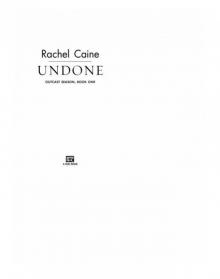 Undone
Undone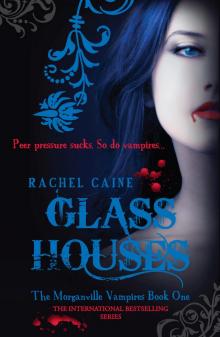 Glass Houses
Glass Houses Prince of Shadows
Prince of Shadows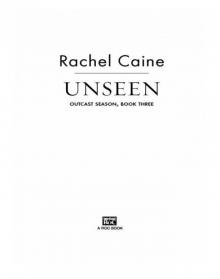 Unseen
Unseen Midnight at Mart's
Midnight at Mart's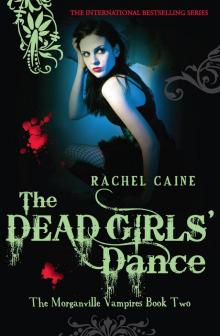 The Dead Girls Dance
The Dead Girls Dance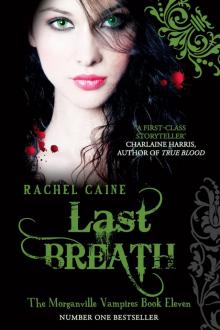 Last Breath
Last Breath Stillhouse Lake
Stillhouse Lake Daylighters
Daylighters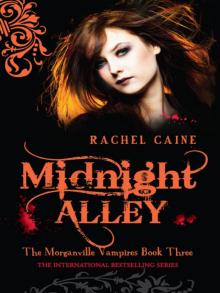 Midnight Alley
Midnight Alley Black Dawn
Black Dawn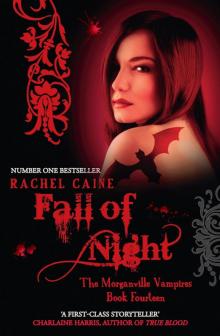 Fall of Night
Fall of Night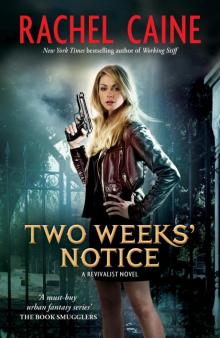 Two Weeks Notice
Two Weeks Notice Bitter Blood
Bitter Blood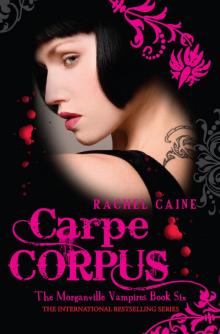 Carpe Corpus
Carpe Corpus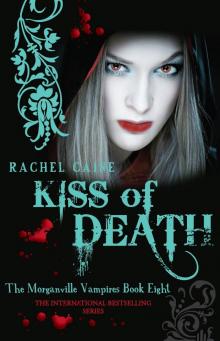 Kiss of Death
Kiss of Death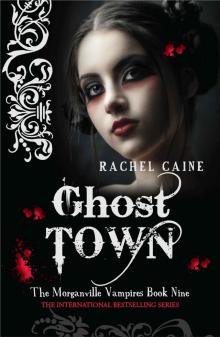 Ghost Town
Ghost Town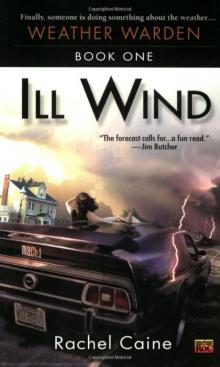 Ill Wind
Ill Wind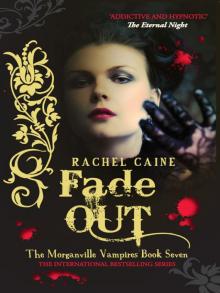 Fade Out
Fade Out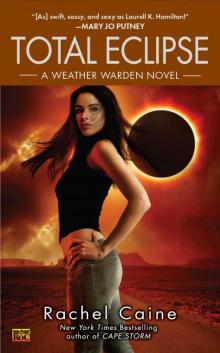 Total Eclipse
Total Eclipse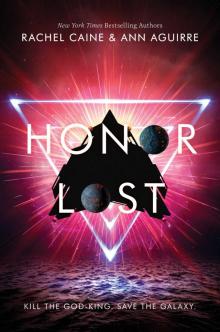 Honor Lost
Honor Lost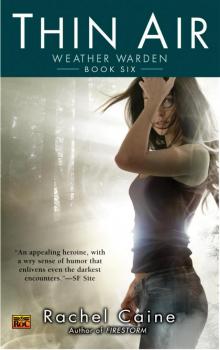 Thin Air
Thin Air Black Corner
Black Corner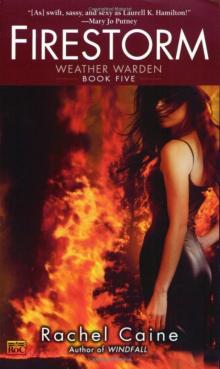 Firestorm
Firestorm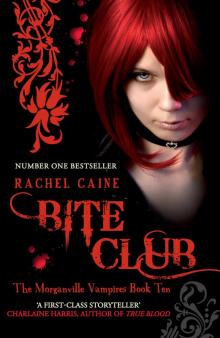 Bite Club
Bite Club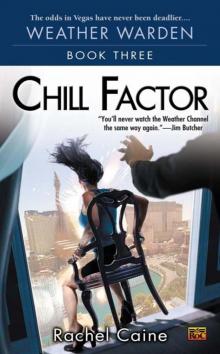 Chill Factor
Chill Factor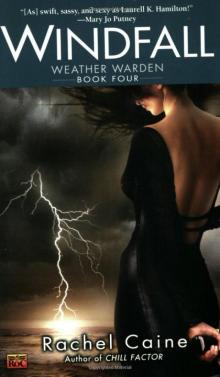 Windfall
Windfall Oasis
Oasis Devils Bargain
Devils Bargain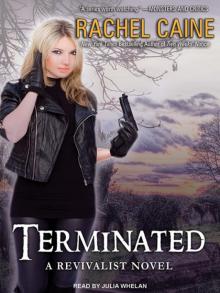 Terminated
Terminated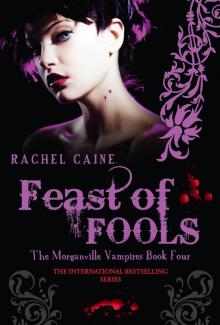 Feast of Fools
Feast of Fools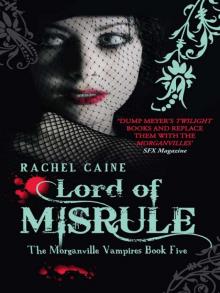 Lord of Misrule
Lord of Misrule Devils Due
Devils Due Ladies' Night
Ladies' Night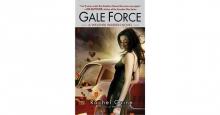 Gale Force
Gale Force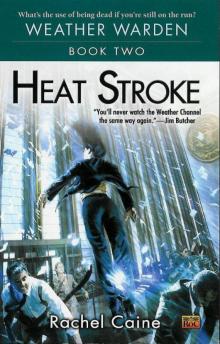 Heat Stroke
Heat Stroke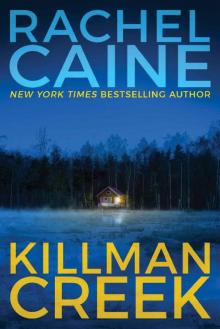 Killman Creek
Killman Creek Sword and Pen
Sword and Pen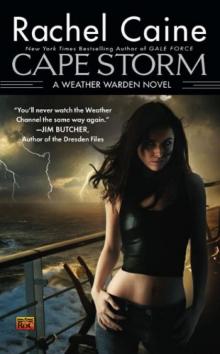 Cape Storm
Cape Storm Unbroken
Unbroken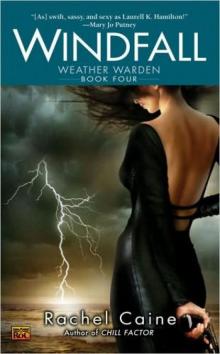 Windfall tww-4
Windfall tww-4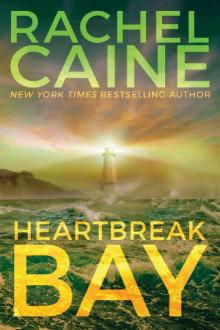 Heartbreak Bay (Stillhouse Lake)
Heartbreak Bay (Stillhouse Lake) Daylighters: The Morganville Vampires
Daylighters: The Morganville Vampires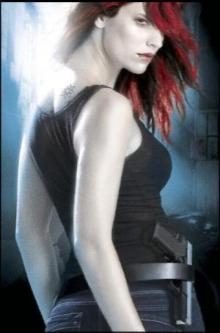 Duty
Duty Honor Bound
Honor Bound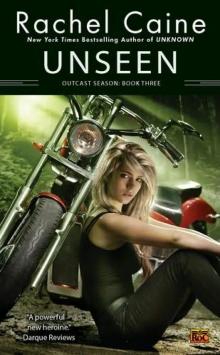 Unseen os-3
Unseen os-3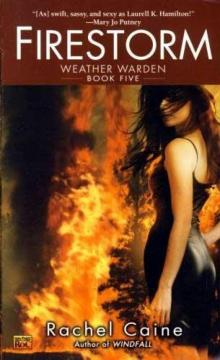 Firestorm tww-5
Firestorm tww-5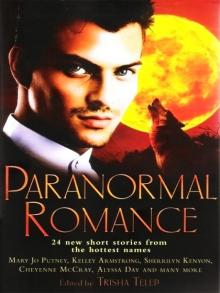 Blue Crush
Blue Crush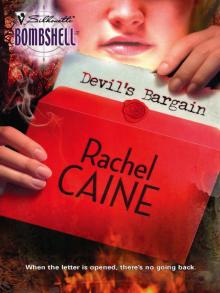 Devil s Bargain
Devil s Bargain Prince of Shadows: A Novel of Romeo and Juliet
Prince of Shadows: A Novel of Romeo and Juliet Bite Club mv-10
Bite Club mv-10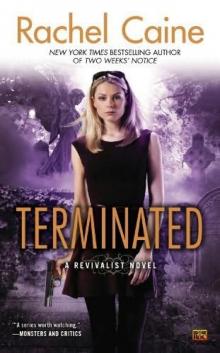 Terminated tr-3
Terminated tr-3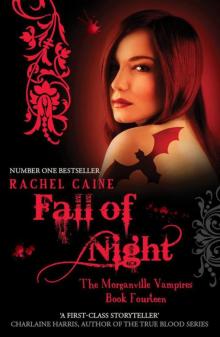 The Morganville Vampires 14 - Fall of Night
The Morganville Vampires 14 - Fall of Night Bitter Blood tmv-13
Bitter Blood tmv-13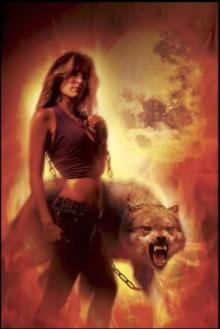 Falling for Grace
Falling for Grace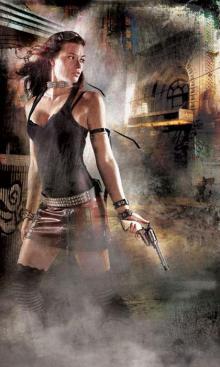 The True Blood of Martyrs
The True Blood of Martyrs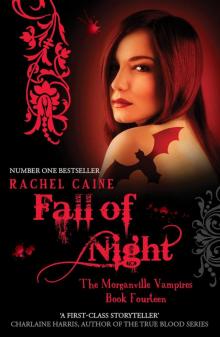 Fall of Night (The Morganville Vampires)
Fall of Night (The Morganville Vampires)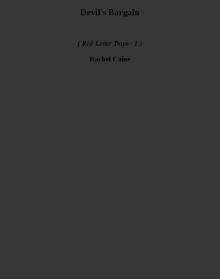 Devil's Bargain rld-1
Devil's Bargain rld-1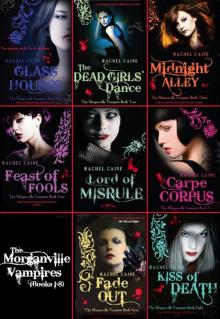 The Morganville Vampires (Books 1-8)
The Morganville Vampires (Books 1-8)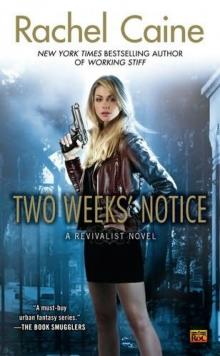 Two Weeks' Notice tr-2
Two Weeks' Notice tr-2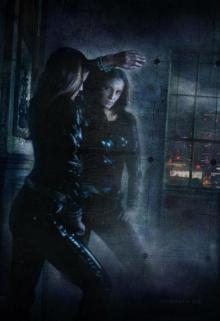 An Affinity for Blue
An Affinity for Blue Caine, Rachel-Short Stories
Caine, Rachel-Short Stories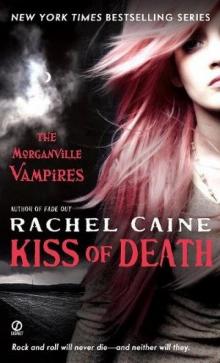 Kiss of Death tmv-8
Kiss of Death tmv-8 WITCHGRAVE
WITCHGRAVE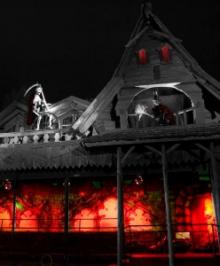 Dark Rides
Dark Rides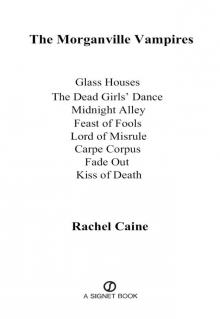 The Morganville Vampires
The Morganville Vampires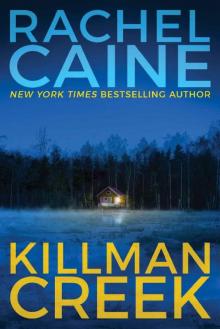 Killman Creek (Stillhouse Lake Series Book 2)
Killman Creek (Stillhouse Lake Series Book 2) Midnight Bites
Midnight Bites Line of Sight
Line of Sight![Morganville Vampires [01] Glass Houses Read online](http://i1.bookreadfree.com/i1/03/30/morganville_vampires_01_glass_houses_preview.jpg) Morganville Vampires [01] Glass Houses
Morganville Vampires [01] Glass Houses Black Dawn tmv-12
Black Dawn tmv-12 Midnight at Mart ww-103
Midnight at Mart ww-103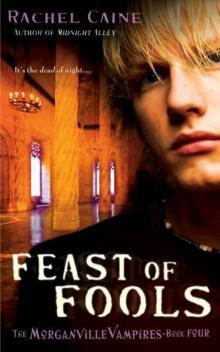 Feast of Fools tmv-4
Feast of Fools tmv-4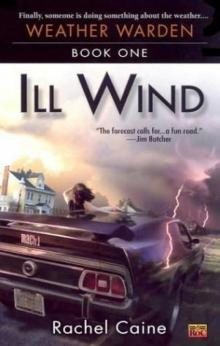 Ill Wind tww-1
Ill Wind tww-1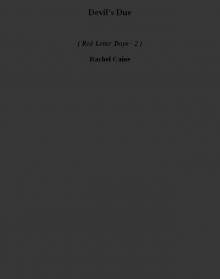 Devil's Due rld-2
Devil's Due rld-2 Black Dawn: The Morganville Vampires
Black Dawn: The Morganville Vampires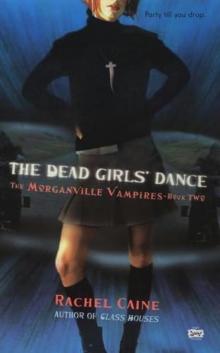 Dead Girls' Dance tmv-2
Dead Girls' Dance tmv-2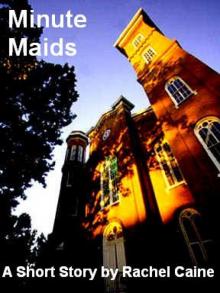 Minute Maids
Minute Maids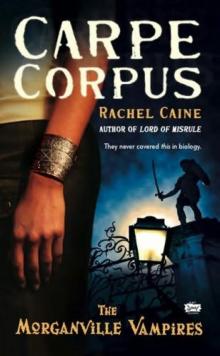 Carpe Corpus tmv-6
Carpe Corpus tmv-6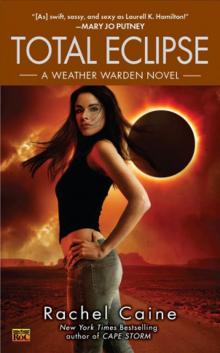 Total Eclipse tww-9
Total Eclipse tww-9 Ghost Town mv-9
Ghost Town mv-9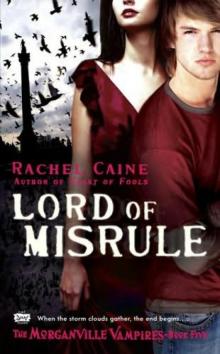 Lord of Misrule tmv-5
Lord of Misrule tmv-5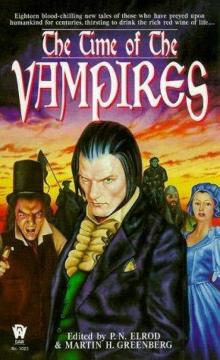 Faith Like Wine
Faith Like Wine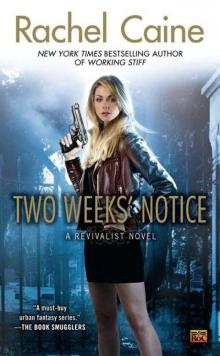 Two Weeks' Notice: A Revivalist Novel
Two Weeks' Notice: A Revivalist Novel Daylighters tmv-15
Daylighters tmv-15 Stamps, Vamps & Tramps (A Three Little Words Anthology)
Stamps, Vamps & Tramps (A Three Little Words Anthology) Unbroken os-4
Unbroken os-4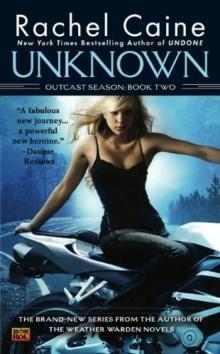 Unknown os-2
Unknown os-2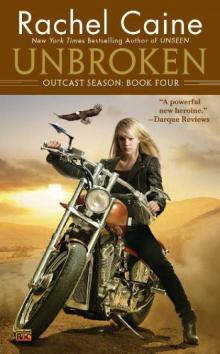 4 - Unbroken
4 - Unbroken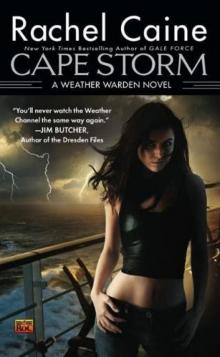 Cape Storm tww-8
Cape Storm tww-8 Last Breath tmv-11
Last Breath tmv-11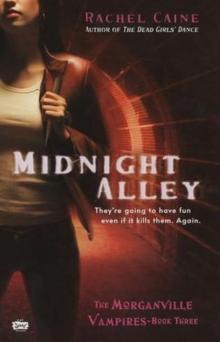 Midnight Alley tmv-3
Midnight Alley tmv-3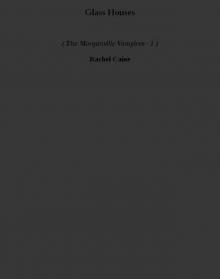 Glass Houses tmv-1
Glass Houses tmv-1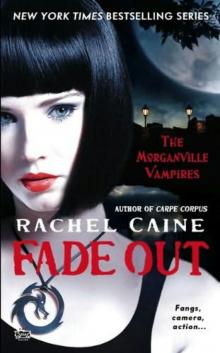 Fade Out tmv-7
Fade Out tmv-7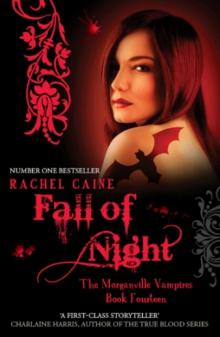 Fall of Night tmv-14
Fall of Night tmv-14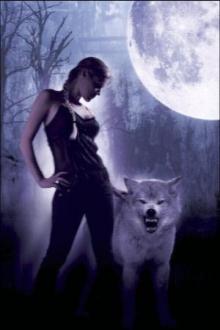 Godfellas
Godfellas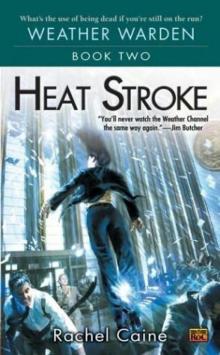 Heat Stroke ww-2
Heat Stroke ww-2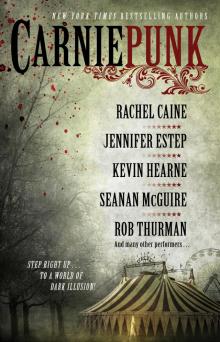 Carniepunk
Carniepunk Oasis ww-102
Oasis ww-102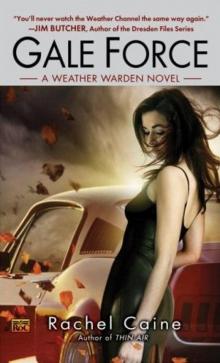 Gale Force tww-7
Gale Force tww-7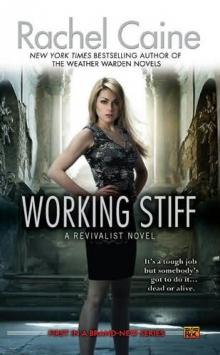 Working Stiff tr-1
Working Stiff tr-1